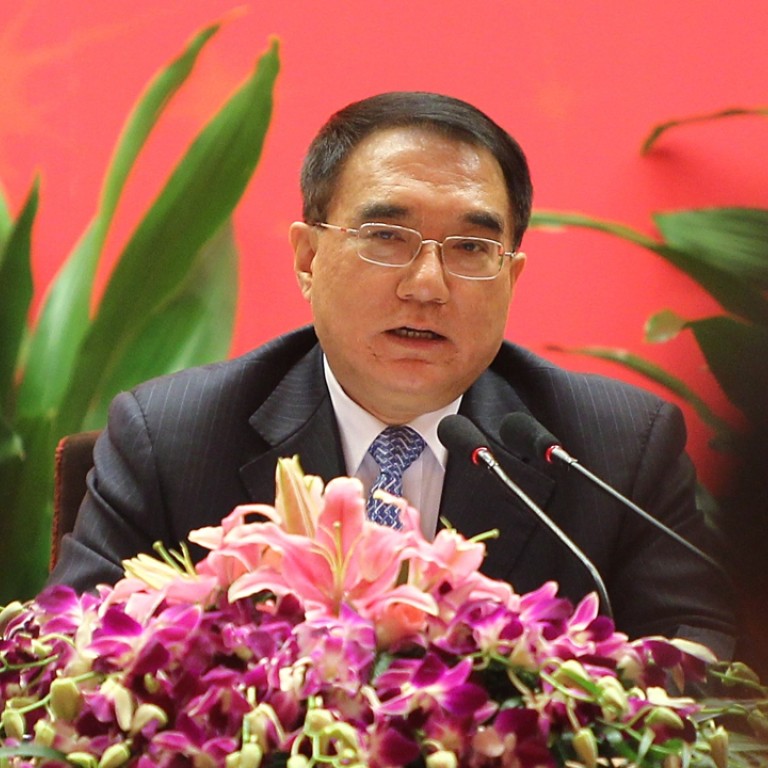
Graft cloud falls over former Communist Party boss of Chinese rust-belt province
Wang Min targeted by anti-corruption investigators in agency’s second swing at Liaoning in recent years
The Communist Party’s former top man for the northeastern rust-belt province of Liaoning is under investigation, national graft-busters have said after kicking off the latest round of inspection tours.
Wang Min, 66, was suspected of violating discipline, the agency announced on Friday morning, using a term that often refers to corruption.
The move surprised many, given it came during the annual sessions of the National People’s Congress (NPC) and the Chinese People’s Political Consultative Conference in Beijing, traditionally a time to display unity and strength.
Wang retired as Liaoning’s party chief last year following a six-year stint, and was then appointed to a senior role in the NPC’s committee of technology and education.
The Central Commission for Discipline Inspection began its tour of the province last week – its second in recent years.
A check in 2014 saw the deputy chair of the province’s top political advisory body sacked. The latest round of tours, which began in late February, is targeting the central propaganda department, several ministries, as well as Shandong and two other provinces.
The party has repeatedly branded such inspections as key weapons in fighting corruption.
Liaoning province has seen several reshuffles of top officials in recent years. After Wang’s retirement last year, the role of provincial party chief was filled by Li Xi, then deputy party chief of Shanghai. In 2014, then governor Chen Zhenggao was named minister of housing and urban-rural development, and his position was also taken up by an outsider, Chen Qiufa, who was chair of Hunan province’s top political advisory committee.

Wang, originally from Anhui province, worked in four provinces before his retirement. He earned his doctorate in machine manufacturing at the Nanjing Aeronautical Institute based in Jiangsu province in the 1980s, before becoming a lecturer there.
He was a visiting scholar at Hong Kong Polytechnic University from 1987 to 1989.
Wang’s career took a turn in 1994 when he was appointed assistant governor of Jiangsu.
He spent a decade there climbing the government career ladder and was made party chief of the booming coastal city of Suzhou before leaving for Liaoning.
Jiangsu has been one of the hardest-hit provinces in the national anti-corruption drive, with three senior officials sacked for graft.
Wang’s latest public appearance was on Thursday, when he attended a meeting of the province’s lawmakers in Beijing, held as members of the nation’s governing class arrived in Beijing for the annual “Two Sessions”.
“[The case] shows that there’s no blind spot in the anti-corruption drive,” Fu Ying, the NPC spokeswoman told reporters. “Lawmakers at all levels will be subjected to punishment if they violate the law or discipline.”

